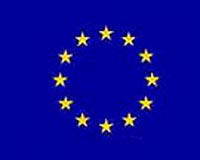Turkey Strongly Urged to Liberalize Article 301
In a press release of 7 November, Freedom House, the rights organisation co-founded by Eleanor Roosevelt in 1941, called for changes in the controversial Article 301 which has led to more than a hundred trials against rights activists, journalists, writers and activists in Turkey in recent years.
The press release, also to be found on the website of the organisation, reads as follows:
"Restrictive speech law"
The Turkish government is strongly encouraged to follow through on stated commitments to amend a restrictive speech law, Freedom House said today.
The law, Article 301 of the Turkish penal code, considers insults to “Turkish identity” and the country's institutions to be a crime punishable by up to three years in prison. In an annual report released yesterday about Turkey’s prospects for European Union membership, the European Commission announced that the law is a barrier to Turkey’s entry.
Turkish government has made promise of change
The Turkish government quickly announced that it would revise the law and bring it to parliament for a vote. “Freedom House applauds the announcement of the Turkish government to amend this restrictive law, which so clearly hinders Turkey’s efforts to become a truly free society,” said Thomas O. Melia, deputy executive director of Freedom House. “There is simply no place for the criminalization of free expression in any country that aspires to democracy.”
Pamuk and Dink
Article 301 has been used against scholars, writers, and journalists and has been invoked with increasing frequency in 2006 and 2007. It gained notoriety when Nobel laureate Orhan Pamuk and Turkish-Armenian journalist Hrant Dink were charged under the law for speaking out about Turkey’s role in mass killings of Armenians in the early 20th century.
Other articles also restrict freedom of expression
However, it is not Turkey’s only law limiting media freedom. “Article 301 is certainly the best-known of Turkey’s restrictive speech laws, but in fact there are a number of others that, taken together, effectively undermine freedom of expression as outlined by the Turkish constitution,” said Karin Karlekar, managing editor of Freedom of the Press, Freedom House’s annual survey of media freedom worldwide.
“It is very heartening that the European Commission has seriously raised this issue, although bringing Turkey’s media environment up to European standards will ultimately require more than simply the repeal of Article 301. Nevertheless, it is an important first step.” Freedom of the Press 2007 reported that “constitutional provisions for freedom of the press and of expression exist, but are only partially upheld in practice and have been increasingly undermined by the more restrictive measures of the new Turkish Penal Code.”
The report points out other laws that are used to restrict press freedom, including Article 277 of the penal code, which was invoked to charge several journalists covering controversial court cases with ‘attempting to influence court decisions.’ Article 216 penalizes ‘inflaming hatred and hostility among peoples’ and has been used against journalists who write about the Kurdish population.
Turkey "Partly free"
Turkey is ranked as Partly Free in the 2007 versions of both Freedom of the Press and Freedom of the World, Freedom House’s survey of political rights and civil liberties. (FH/IFEX/AG)
* The subheadings were added by bianet.






